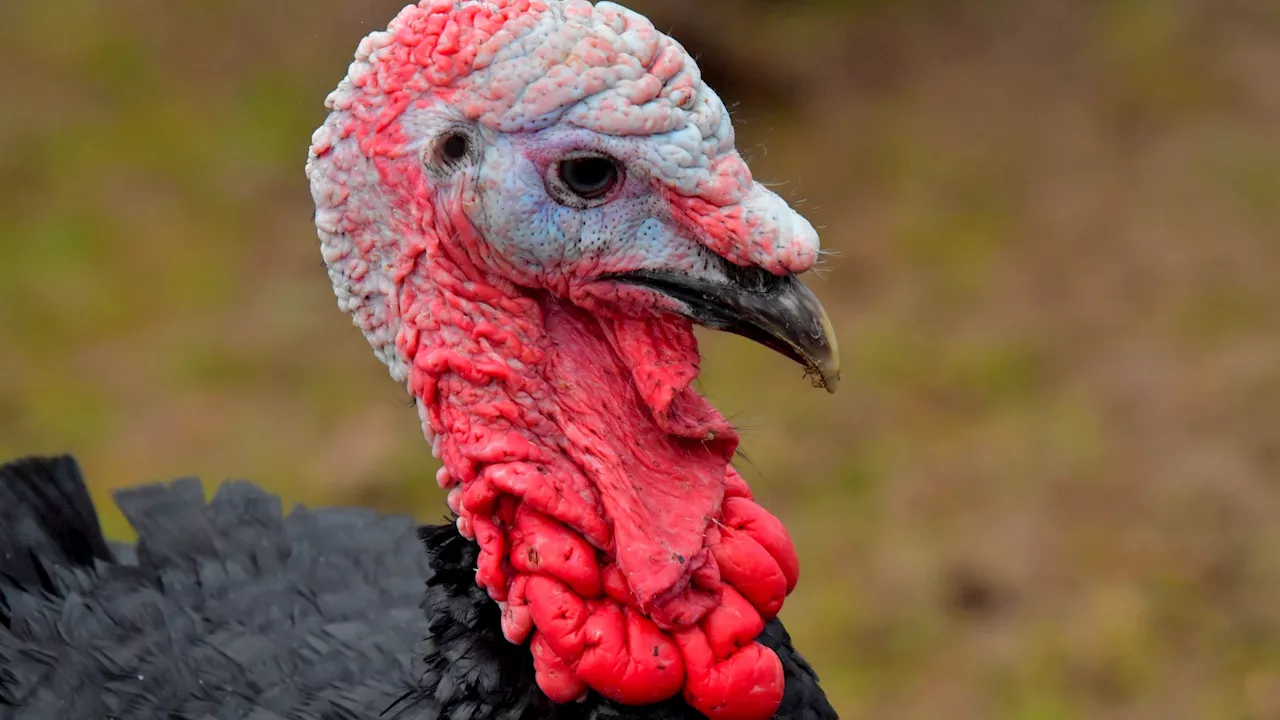A new study reveals that the human immune protein MxA can block the replication of the H5N1 avian flu virus, but the virus is evolving and may soon be able to overcome this defense. This raises concerns about a potential new zoonotic threat.
A recent study published in the journal Emerging Infectious Diseases showed that the human immune factor, myxovirus resistance protein 1 (MxA), represses the replication of highly pathogenic avian influenza A (HPAI) viruses of the H5N1 subtype. HPAI H5N1 clade 2.3.4.4b viruses have increasingly caused mammalian outbreaks over the past few years.
In the United States (US), outbreaks have been detected in cows since Spring 2024, leading to viral transmission to farm workers, possibly via contact with contaminated milk or infected cows. This has sparked concerns that these viruses may adapt to humans. Intermediate hosts as incubators: Ongoing circulation of H5N1 in dairy cattle with active Mx1 proteins could drive the emergence of MxA-resistant variants, emphasizing the need for enhanced surveillance in these animal populations. Notably, some mammalian H5N1 clade 2.3.4.4b isolates already harbor mutations that enhance viral polymerase activity in mammalian cells, binding to mammalian receptors, or evasion from the BTN3A3 restriction factor. Specific mutations, such as PB2E627K and PB2M631L within the PB2 627 domain, are known to contribute to these adaptations. MxA is an innate immune protein that can repress the replication of zoonotic influenza A viruses (IAVs). Studies have reported that human-adapted IAVs, including the pandemic H1N1 virus A/Hamburg/4/2009 (pH1N1), escape MxA restriction through adaptive amino acids. However, avian IAVs, including the H5N1 clade 2.3.4.4b isolates and human HPAI H5N1 isolate A/Thailand/1(KAN-1)/2004, lack these MxA evasion-mediating amino acids. The study and findings The present study investigated whether MxA restricts zoonotic infections with mammalian H5N1 clade 2.3.4.4b isolate
Avian Influenza H5N1 Virus Evolution Zoonotic Threat Human Immunity
United Kingdom Latest News, United Kingdom Headlines
Similar News:You can also read news stories similar to this one that we have collected from other news sources.
 H5N1 Avian Influenza: Balancing Vigilance and Business as UsualThe highly pathogenic avian influenza H5N1 virus remains a low risk to the public. Experts believe current and developing treatments and vaccines are sufficient to prevent severe disease. However, monitoring and evaluation of the virus are crucial. Officials emphasize the need to balance enhanced vigilance with normalcy in dealing with the current outbreak.
H5N1 Avian Influenza: Balancing Vigilance and Business as UsualThe highly pathogenic avian influenza H5N1 virus remains a low risk to the public. Experts believe current and developing treatments and vaccines are sufficient to prevent severe disease. However, monitoring and evaluation of the virus are crucial. Officials emphasize the need to balance enhanced vigilance with normalcy in dealing with the current outbreak.
Read more »
 First Severe Human Case of H5N1 Bird Flu Reported in U.S.The United States has recorded its first severe human case of H5N1 avian influenza, also known as bird flu. The infected patient, over 65 years old with underlying medical conditions, is hospitalized in critical condition. This is the 61st reported human case in the country since April, but the CDC maintains the overall public risk remains low. The patient's exposure is linked to sick and dead birds in backyard flocks, marking the first known U.S. case with this origin.
First Severe Human Case of H5N1 Bird Flu Reported in U.S.The United States has recorded its first severe human case of H5N1 avian influenza, also known as bird flu. The infected patient, over 65 years old with underlying medical conditions, is hospitalized in critical condition. This is the 61st reported human case in the country since April, but the CDC maintains the overall public risk remains low. The patient's exposure is linked to sick and dead birds in backyard flocks, marking the first known U.S. case with this origin.
Read more »
 Rare Avian Flu Strain Found in Child Traveler from IndiaA unique reassortant strain of highly pathogenic avian influenza A(H5N1) virus was detected in a child returning to Australia from India. This discovery highlights the global circulation of viruses and the need for strengthened surveillance in South Asia.
Rare Avian Flu Strain Found in Child Traveler from IndiaA unique reassortant strain of highly pathogenic avian influenza A(H5N1) virus was detected in a child returning to Australia from India. This discovery highlights the global circulation of viruses and the need for strengthened surveillance in South Asia.
Read more »
 Thousands of turkeys killed after bird flu outbreak days before Christmas – including some destined for d...What you need to know about Avian Influenza or Bird Flu
Thousands of turkeys killed after bird flu outbreak days before Christmas – including some destined for d...What you need to know about Avian Influenza or Bird Flu
Read more »
 Single mutation in (HPAI) H5N1 influenza virus could increase human transmission riskA single modification in the protein found on the surface of the highly pathogenic avian influenza (HPAI) H5N1 influenza virus currently circulating in U.S. dairy cows could allow for easier transmission among humans, according to new research funded by the National Institutes of Health (NIH) and published today in the journal Science.
Single mutation in (HPAI) H5N1 influenza virus could increase human transmission riskA single modification in the protein found on the surface of the highly pathogenic avian influenza (HPAI) H5N1 influenza virus currently circulating in U.S. dairy cows could allow for easier transmission among humans, according to new research funded by the National Institutes of Health (NIH) and published today in the journal Science.
Read more »
 Bovine H5N1 influenza shows potential for human adaptation through key mutationsRecent study reveals H5N1 mutations enhancing human receptor binding, highlighting pandemic risks and the need for vigilant surveillance of influenza strains.
Bovine H5N1 influenza shows potential for human adaptation through key mutationsRecent study reveals H5N1 mutations enhancing human receptor binding, highlighting pandemic risks and the need for vigilant surveillance of influenza strains.
Read more »
